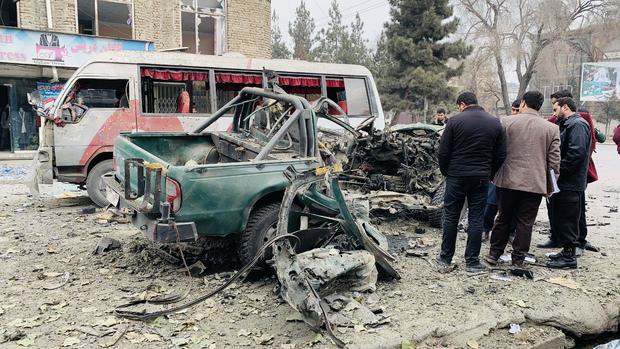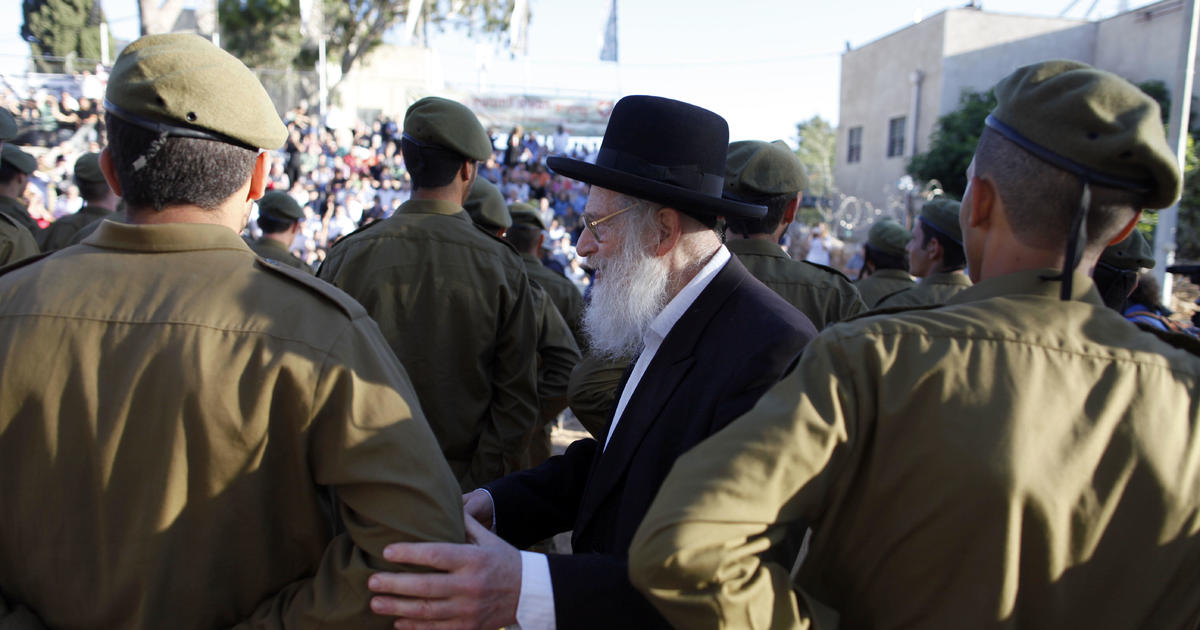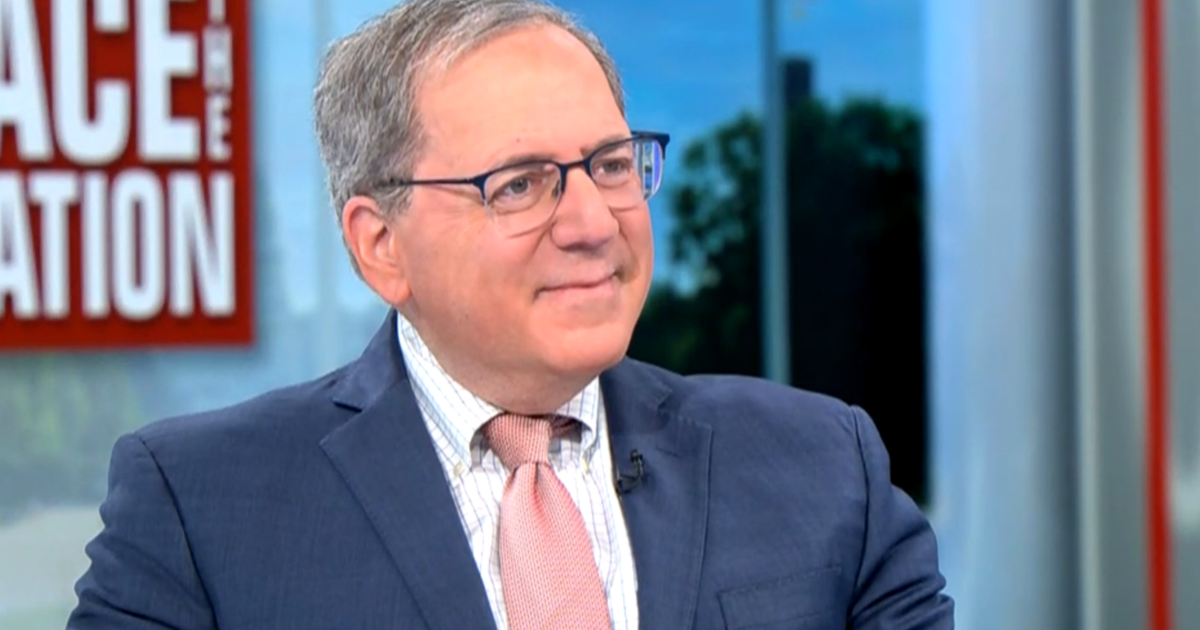Deep skepticism as Afghan peace talks set to resume amid bloodshed and U.S. withdrawal
Negotiators returned to Doha, Qatar on Tuesday to resume peace talks between the Afghan government and the Taliban. This round of talks will focus for the first time on the truly thorny issues that have left Afghanistan mired in bloodshed for two decades.
The second round of talks in Doha will see the two sides begin negotiating for a ceasefire, but it comes right after U.S. officials for the first time accused the insurgent group of carrying out a series of targeted killings, as Afghan officials warn the militants are preparing for a new offensive, and as American troops pull out.
Abdullah Abdullah, chairman of the High Council of National Reconciliation, said his country was "committed to achieving a lasting peace, and ask the Taliban to do so."
Afghan and Taliban negotiators paused their discussions on December 12 after three months of talks that managed only to establish ground rules and a framework of topics for the more difficult task ahead — hammering out an actual peace agreement to end the longest war ever to embroil the United States.
A backdrop of bloodshed
This round of talks comes on the heels of an unprecedented wave of violence, including targeted assassinations of high-profile government officials, human rights activists and journalists, which lent urgency to the more substantive chapter of the negotiations.
Both sides agreed to include discussion of a permanent ceasefire on the agenda in this round.
The United Nations Assistance Mission in Afghanistan (UNAMA) welcomed the return of the Afghan and Taliban negotiators to Doha, Qatar.
"The negotiators are confronted with some daunting challenges and much work remains," UNAMA said in a statement, noting the cooperation and "incremental but genuine progress" made in the first round late last year.
"I urge both sides to use this opportunity to move ahead to create the conditions for a reduction in violence that will end further loss of Afghan lives and reach a political settlement that is acceptable to all segments of Afghan society," the U.N. Secretary-General's Special Representative for Afghanistan, Deborah Lyons, said in the UNAMA statement. "A cessation in fighting would create a better atmosphere for talks, provide hope to the people, and allow humanitarian actors to deliver much-needed winter assistance to Afghans across the whole country."
At least five journalists were killed in unclaimed assassinations across Afghanistan over the last six weeks. The U.S. military and Afghan officials blame the Taliban. The Afghan intelligence chief says security forces prevented the assassination of three more journalists.
Colonel Sonny Leggett, the U.S military spokesman in Afghanistan, pointed the finger for the recent killings unambiguously at the Taliban, and made it clear that for the talks to have a chance, the bloodshed must stop.
"The Taliban's campaign of unclaimed attacks and targeted killing of government officials, civil society leaders and journalists must also cease for peace to succeed," said Leggett.
U.S. peace envoy Zalmay Khalilzad, who arrived in Kabul on Tuesday after a visit to Pakistan's capital, said the ongoing violence was "unacceptable" and called on both sides to "demonstrate that they are acting in the best interest of Afghan people."
"It is clear that a ceasefire is the absolute priority" in the negotiations with the Taliban, Nader Nadery, a government negotiator, said in a tweet.
Fawzia Kofi, another member of the negotiating team, warned, however, that the Taliban has long used violence to increase its leverage at the negotiating table, and said a "truce is not an easy topic to discuss" with the insurgent group, suggesting the Taliban would try to delay any ceasefire.
Impact of U.S. withdrawal
Senior Afghan security officials have voiced serious doubts about the prospects for the peace talks, and they worry the complete withdrawal of American forces, planned for May under a unilateral agreement signed last year between the U.S. and the Taliban, will have a greater impact on the ground — and a grim one.
"The Taliban does not believe in peace," Ahmad Zia Siraj, head of Afghanistan's National Directorate of Security, the nation's premier intelligence agency, told lawmakers in the Afghan parliament on Monday. "They want to delay peace talks until the full withdrawal of foreign troops."
The Afghan minister of Interior Affairs warned the lawmakers that even as the Taliban sat down to negotiate peace, it was preparing for a spring offensive, which has often brought a wave of conventional and suicide attacks against soft targets in big cities and Afghan security forces.
"The Taliban are preparing for another war, and we are ready as well," Minister Masoud Andarabi said.
Last year the Taliban didn't announce its usual spring offensive, as it was engaged in unilateral talks with U.S. officials. Those talks resulted in the agreement for a complete, conditional withdrawal of U.S. forces from the longest war in American history — the key condition being that the Taliban reduce its attacks on Afghan security forces and the public.
While that hasn't happened, U.S. troop numbers continue to come down in line with President Donald Trump's orders. CBS News national security correspondent David Martin reported on Monday that the number of U.S. forces in Afghanistan should be down to 2,500 by the end of this week — ahead of the January 15 deadline set by Mr. Trump.
A ceasefire between the U.S. and the Taliban remains in place, but the Taliban on Monday accused American forces of violating the truce with airstrikes in southern and eastern Afghanistan, and it warned of retaliation.
"The incoming Biden administration wants both sides to find peace through negotiations, Torak Farhadi, a former advisor to Afghan President Ashraf Ghani, told CBS News. "But the Afghan sides are not closer than before to making peace."




